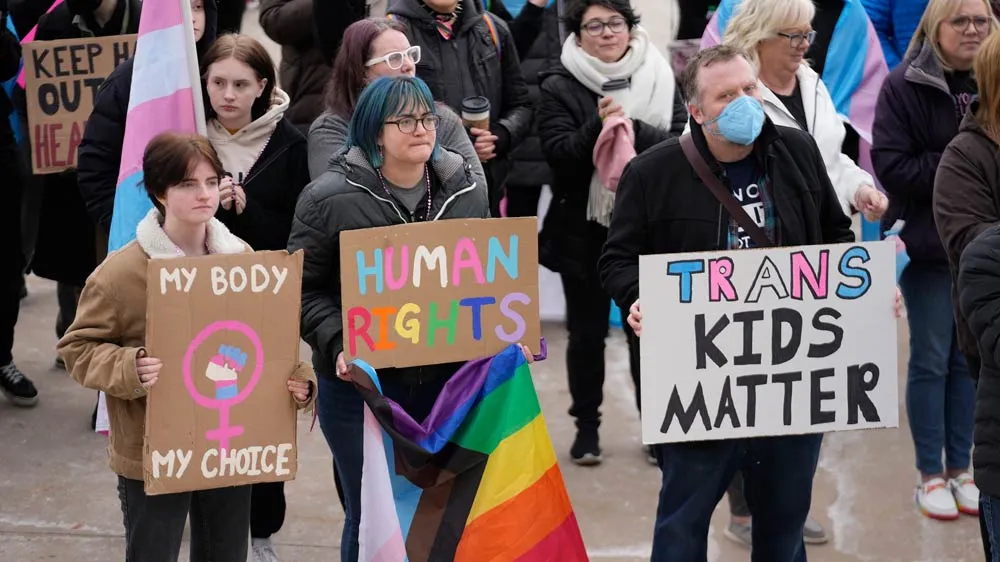January 23, 2016
Homelessness and HIV/AIDS
Jeff Taylor READ TIME: 3 MIN.
Homelessness and HIV/AIDS are two of the biggest issues facing the LGBT community. When the two exist in tandem, the challenges that each condition presents become exasperated.
The cost of medications and healthcare for those living with HIV can become impossible to keep up with for homeless individuals. Add to that the exposure to the elements and the prevalence of poor diets seen in that population and the situation becomes further complicated, as HIV targets the immune system. According to the National Health Care for the Homeless Council, homeless people are three to six times more likely to become ill.
The National Coalition for the Homeless points out in an online fact sheet that the conditions of homelessness can also increase the risk of contracting HIV, with a potential for a higher prevalence of intravenous drug use and unsafe sex practices as compared to the general public.
According to data from the North Carolina Coalition to End Homelessness (NCCEH), taken from Jan. 28, 2015, there were 85 total HIV positive homeless adults in North Carolina. That included 53 emergency and seasonal, 22 in transitional housing and 10 unsheltered. They also track numbers of formerly homeless people who are now in permanent housing. Of those, there were four HIV positive adults in rapid re-housing and 130 in permanent supportive housing. The total number of homeless people, including both children and adults, sat at 3,527.
As the National Association of Social Workers (NASW) states in their report "HIV/AIDS and Homelessness," authored by Evelyn P. Tomaszewski, "Studies indicate that the prevalence of HIV among homeless people is as high as 20 percent, with some 'subgroups' having much higher burdens of disease."
In Charlotte, Carolina CARE Partnership helps provide housing vouchers to homeless individuals who are also HIV positive. They are the project sponsor for the HUD-funded Housing Opportunities for Persons with AIDS (HOPWA) program.
"This past fall, 2014, and throughout 2015, 30 chronically homeless people who were HIV positive were given housing and supportive services through an initiative run by Carolina CARE Partnership," said Liz Clasen-Kelly, executive director at Urban Ministries, which has helped get the word out in the past about the existence of these services to those who might need them.
"It is a phenomenal resource to have, because we know that housing is healthcare," she added. "There are multiple challenges for seeking regular preventive primary healthcare when you're experiencing homelessness."
"Housing status has more impact on health outcomes than demographics, drug and alcohol use, mental health status or receipt of social services," Carolina CARE Partnership says on its website. They also state that those experiencing homelessness or unstable housing are more likely to enter HIV care late, have lower CD4 counts and higher viral loads, be less likely to receive and adhere to antiretroviral therapy, are more likely to be hospitalized and use emergency rooms and experience higher rates of premature death.
They do, however, offer positive statistics for those individuals who are able to find stable housing: 84 percent of unstably housed people with HIV who received a voucher for rental assistance were stably housed at 18 months, there was an 80 percent reduction in mortality among homeless people with AIDS who received supportive housing and there was a 57 percent reduction in hospitalizations for people with HIV after they were stably housed. All clear indications that the program is effective.
Yet Clasen-Kelly points out that while progress has been made, it is important to remember that there remains work left to be done.
"The Carolina CARE Partnership did a good deal to work toward ending chronic homelessness for people who are HIV positive, but it did not fully meet the demand. So we certainly have additional chronically homeless individuals who are HIV positive, and that's just chronic homelessness," Clasen-Kelly said. She stressed the difficulty that presents, adding, "There are resources, I think we have agencies and organizations in our community that are willing to work with the homeless population, there's funding to assist them, they have access, but the reality is, the level of poverty those people are experiencing when they're on the street makes even accessing healthcare a challenge."
Additional assistance for homeless individuals with HIV/AIDS can be found through other HOPWA funded agencies, such as the CATAWBA Care Coalition, Crisis Assistance Ministry, Community Link, Different Roads Home, Prosperity Unlimited Cabarrus County and Positive Wellness Alliance.
More information can be found on the Carolina CARE Partnership website at carolinascare.org.

 Copyright QNotes. For more articles from QNotes visit
Copyright QNotes. For more articles from QNotes visit 
